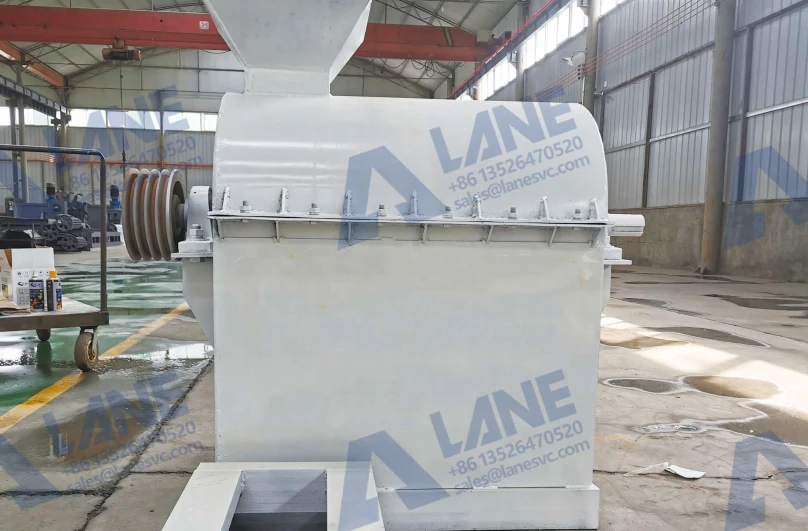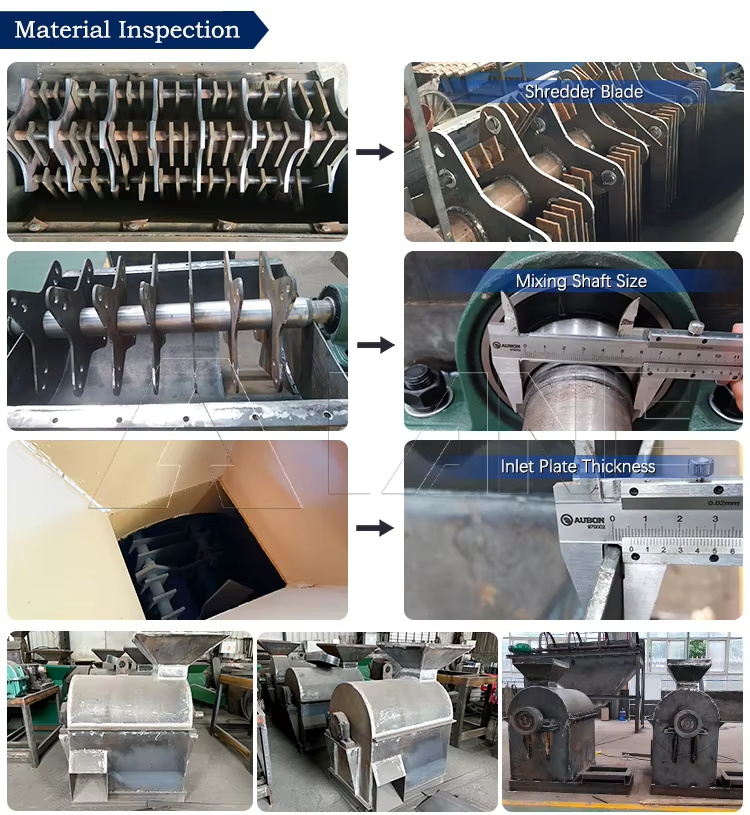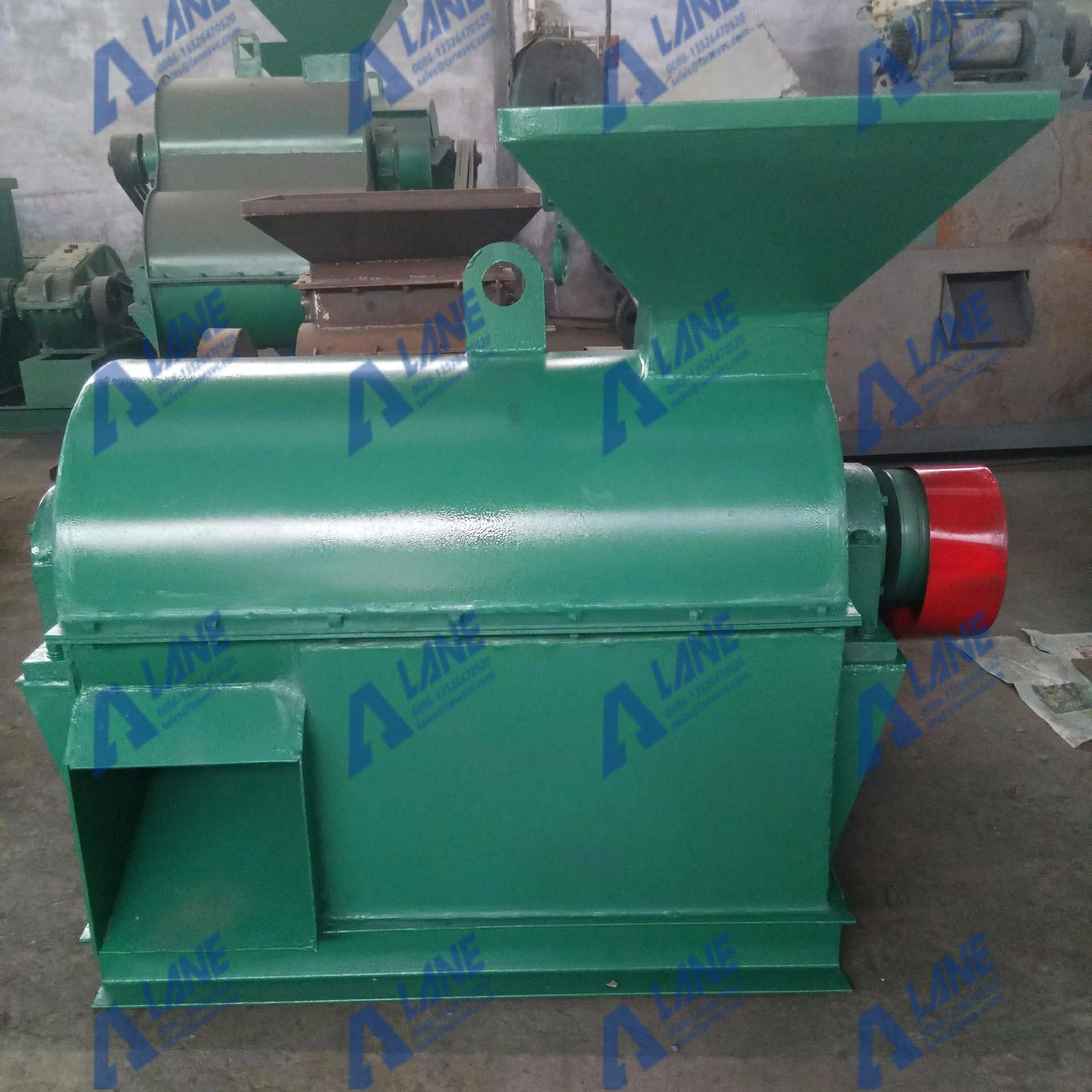If you are planning to upgrade or start an organic fertilizer production line, choosing the right semi-wet crusher for organic fertilizer production is one of the most important decisions you will make. The semi-wet crusher plays a crucial role in crushing high-moisture organic materials into fine, uniform particles for granulation or composting.
However, not all semi-wet crushers are the same. Factors like capacity, blade quality, moisture tolerance, and maintenance requirements can make a big difference in long-term performance. In this guide, we’ll explore 5 key tips to help you choose the best semi-wet crusher for your fertilizer plant.

One of the first things to determine is how much material you need to process per hour. Semi-wet crushers come in different sizes and capacities:
Small-scale units – 1–3 t/h (ideal for small farms or pilot plants)
Medium-scale units – 3–6 t/h (suitable for most organic fertilizer factories)
Large-scale units – 10–20 t/h (for industrial production lines)
Why it matters:
Choosing an undersized crusher will cause bottlenecks, while an oversized machine wastes energy and money.
LANE Recommendation:
Our engineering team helps you calculate the exact capacity you need based on your raw material type, production schedule, and plant size.
A semi-wet crusher for organic fertilizer production must handle materials with 40–60% moisture content without clogging. Some low-quality machines may struggle with sticky, wet materials.
What to look for:
Blade design that prevents material build-up
Sufficient clearance inside the crushing chamber
High-speed rotation to disperse moisture evenly
LANE Advantage:
Our semi-wet crushers use anti-clogging blade arrangements and self-cleaning design to maintain smooth operation, even with fresh poultry manure or sludge.
Blades are the heart of any crusher. Poor-quality blades dull quickly, reducing efficiency and increasing maintenance costs.
Best options:
Alloy steel blades – Excellent wear resistance and cutting power
Stainless steel blades – Corrosion resistant, ideal for wet environments
LANE Standard:
We use double-layer alloy or stainless steel blades that last up to 12 months before replacement, depending on material type and usage.
Frequent downtime means lost production. A good semi-wet crusher should be easy to maintain and clean.
Low-maintenance features to look for:
Quick-access panels for blade replacement
Simplified lubrication points
Durable bearings and shaft seals
LANE Benefit:
Our crushers have tool-free maintenance access and long-life components to keep downtime minimal.
Even the best machines need occasional service. Choosing a supplier with a strong after-sales support system ensures your equipment stays in top condition.
What to expect:
Installation guidance
Operator training
Spare parts availability
Technical troubleshooting
LANE Promise:
We provide one-stop service — from equipment selection and customization to installation, training, and ongoing technical support.

| Feature | Low-Quality Crusher | LANE Semi-Wet Crusher |
| Moisture Handling | < 35% moisture | Up to 60% moisture |
| Blade Material | Mild steel | Alloy / Stainless steel |
| Maintenance | Frequent downtime | Low-maintenance design |
| Capacity Options | Limited | 1–20 t/h customizable |
| After-Sales Support | Minimal | Full technical support |
Selecting the right semi-wet crusher for organic fertilizer production is a critical investment that directly impacts the efficiency, quality, and profitability of your fertilizer business. This machine is not just a simple piece of equipment—it is the foundation for achieving consistent, high-quality organic fertilizer products that farmers trust and rely on. A well-chosen semi-wet crusher can:
Improve production efficiency by eliminating material bottlenecks
Enhance product quality by producing fine, uniform particles ready for granulation or composting
Reduce operational costs through low-maintenance design and durable components
Increase market competitiveness by enabling faster, more reliable production

Over the years, LANE has seen countless examples where upgrading to a high-performance semi-wet crusher transformed a fertilizer production line. In some cases, plants doubled their output capacity without expanding their workforce; in others, product consistency improved so much that farmers became repeat customers year after year.
Moreover, a semi-wet crusher is not just for large industrial plants—it’s equally valuable for small and medium-sized producers who want to maintain quality while growing their operations. Thanks to modern design innovations, today’s crushers handle high-moisture materials without clogging, require less maintenance downtime, and can be customized for a wide range of organic raw materials, including poultry manure, livestock manure, composted biomass, crop residues, and humic acid.
LANE’s semi-wet crusher for organic fertilizer production is specifically engineered to address these needs. Our solutions combine robust construction, advanced blade technology, and intelligent moisture-handling capability to deliver maximum productivity. And we don’t just sell machines—we partner with our customers by providing expert advice, installation support, training, and long-term maintenance services.
In today’s competitive agricultural industry, success depends on efficiency, consistency, and adaptability. By choosing a crusher that is purpose-built for your production goals, you’re making an investment in reliable performance, lower costs, and long-term growth. Whether you are upgrading an existing facility or building a new organic fertilizer production line from scratch, make sure your crushing stage is not the weak link. Invest in a high-quality semi-wet crusher for organic fertilizer production today, and lay the groundwork for a profitable, sustainable future in agriculture.
For more details, please feel free to contact us.
Henan Lane Heavy Industry Machinery Technology Co., Ltd.
Email: sales@lanesvc.com
Contact number: +86 13526470520
Whatsapp: +86 13526470520